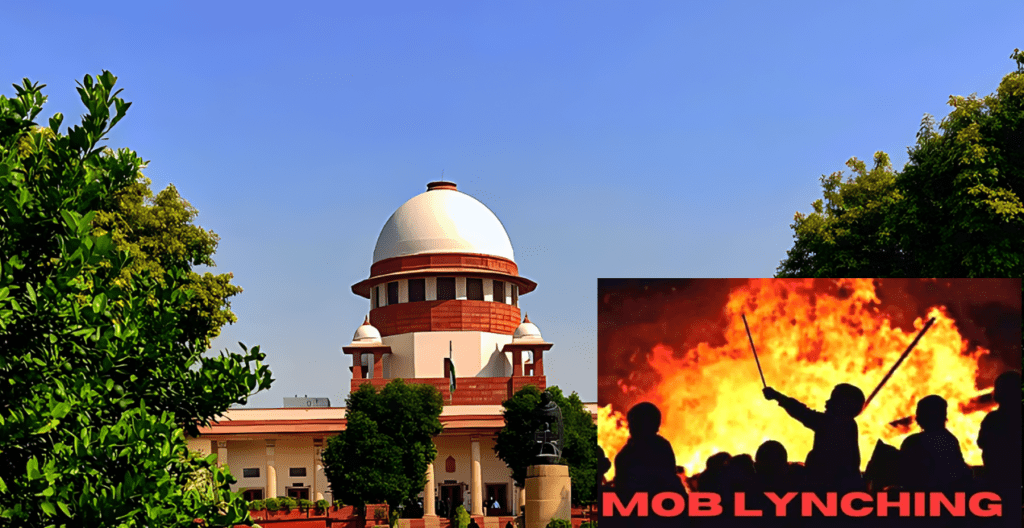
On Friday, the Supreme Court gave notice in a PIL seeking implementation of the orders made in Tehseen Poonawalla v. Union of India and Others (2018), particularly the order directing state governments and union territories to develop compensation plans for victims of lynchings and other mob violence in accordance with Section 357A of the Code of Criminal Procedure, 1973 (CrPC).
The State Governments, the Union Territories, and the Union Government were ordered to file their counter affidavits regarding the implementation of the directions issued in Poonawalla and the manner in which the implementation has been done by a bench made up of Justices KM Joseph and BV Nagarathna. The affidavits must be filed within eight weeks of the notice’s service date, according to the Bench’s directive.
In addition to requesting the implementation of the ruling made in Tehseen Poonawalla by the Supreme Court, this petition also asks for a unified approach to ex gratia recompense for victims of mob violence and hate crimes.
The State Governments were mandated by the Teehseen Poonawalla judgement, which was handed down by the Supreme Court in 2018, to put together a lynching/mob violence victim compensation scheme in light of the provisions of Section 357A of the Criminal Procedure Code within one month of the date of this judgement, according to attorney Mr. Javed Shaikh, who was speaking on behalf of Indian Muslims for Progress And Reforms.
Apart from four or five States, he noted, no other state governments had followed the indicated directive.
The Bench was also informed that there are differences in compensation amounts as well as appeal mechanisms depending on who framed the compensation plan. Apart from four or five States, he noted, no other state governments had followed the indicated directive.
The Bench was also informed that there are differences in compensation amounts as well as appeal mechanisms depending on who framed the compensation plan.
Justice Nagarathna questioned whether the Apex Court could order the States to preserve uniformity in a compensation programme that the State Government was currently developing.
In response, Mr. Shaikh said that the States were not given unrestrained power to design the programme. They are constrained by the guidelines established by the Supreme Court in the Tehseen Poonawalla decision.
“Within one month of the date of this judgement, the State Governments shall prepare a lynching/mob violence victim compensation programme in accordance with the requirements of Section 357A of the CrPC. The State Governments shall take into account the type of physical harm, psychological harm, loss of wages, including lost job and educational prospects, as well as expenses expended for legal and medical care when calculating compensation under the aforementioned programme. The aforementioned compensation mechanism must also include a clause mandating the payment of interim assistance to the victim(s) or to the deceased person’s next of kin within 30 days of the mob violence/lynching incident.
Mr. Shaikh pleaded with the Bench to take into account the need for consistency, at the very least, in ex-gratia compensation awards and to make sure that the States draught Section 357A plans as the Supreme Court had instructed in 2018.
Case No. 428/2023, Indian Muslim for Progress and Reforms (IMPAR) v. UoI and Others.
HARDIK SHARMA, B.COM LL.B





0 Comments